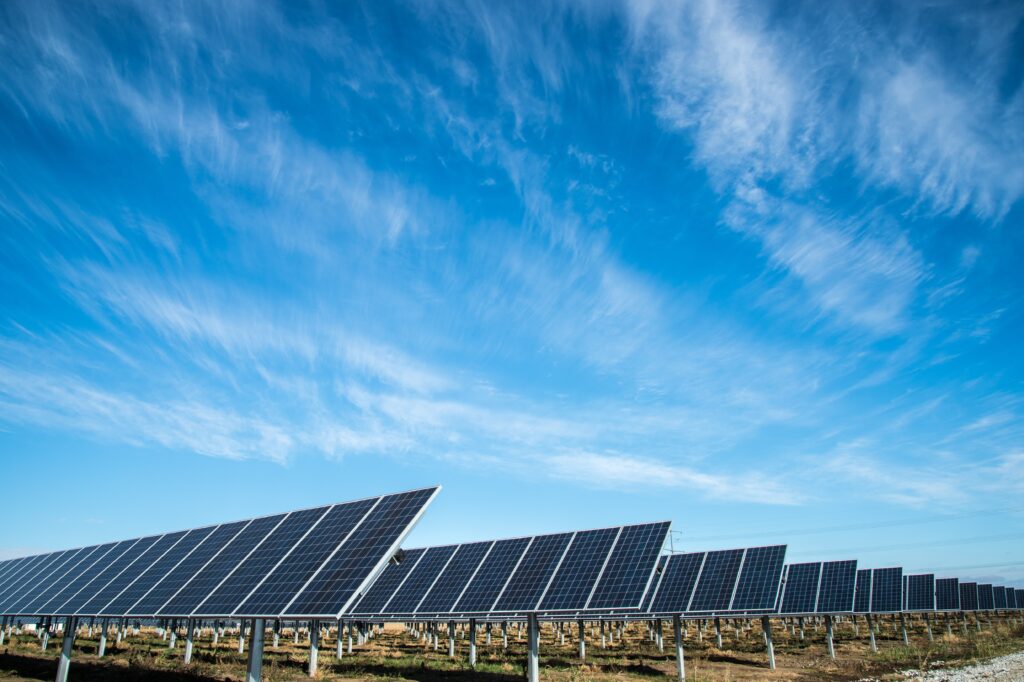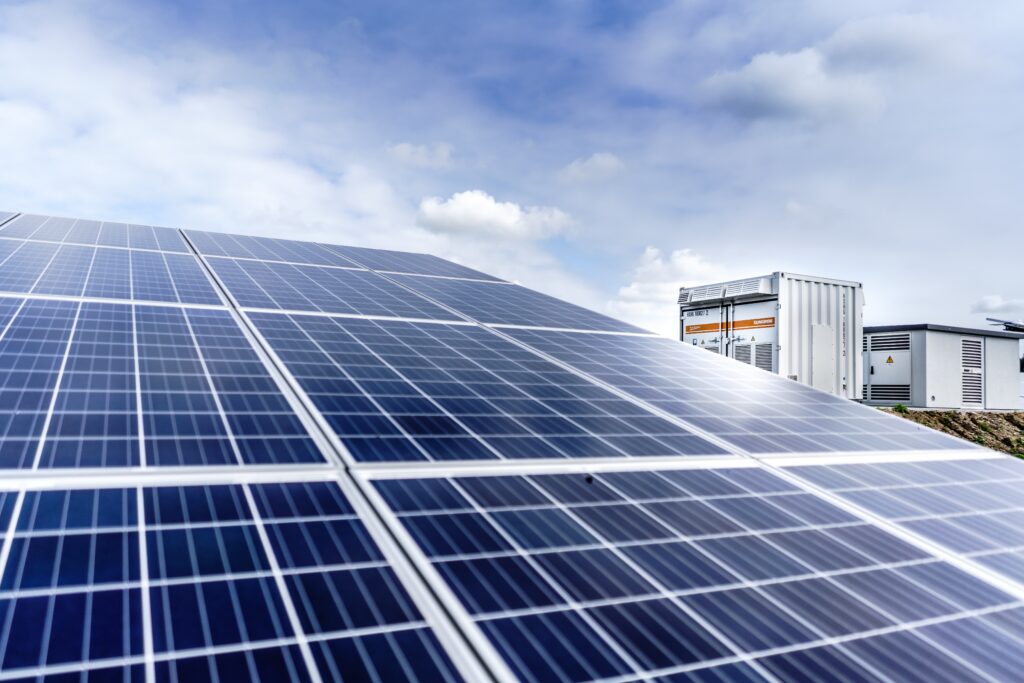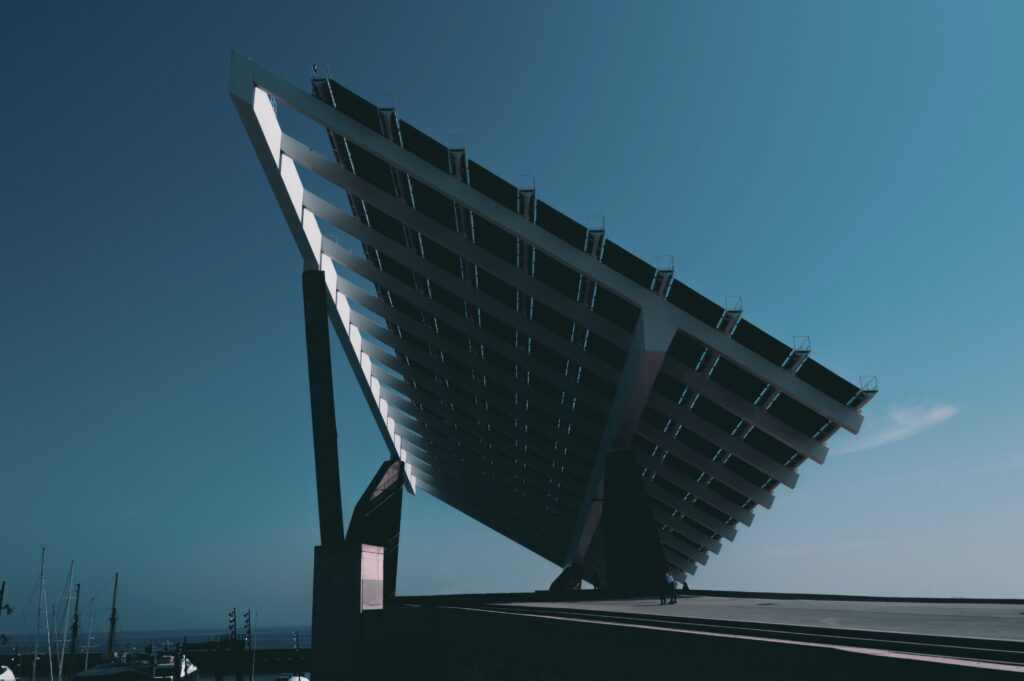Living off the grid has become a rising trend in recent years, with more and more people seeking independence from traditional power sources and embracing alternative energy solutions. One popular option is a solar generator, a device that captures sunlight and converts it into usable electricity. But can a solar generator truly provide all the power you need to live off the grid? In this article, we will explore the capabilities and limitations of solar generators to determine if they are a viable option for those seeking a self-sustainable lifestyle.
Understanding the Concept of Living Off-Grid
Definition of off-grid living
Living off-grid refers to a lifestyle in which individuals or households are not connected to the traditional power grid and instead rely on self-sustainable energy sources for their electricity needs. It involves generating and utilizing one’s own energy supply through various means, one of which is the use of solar generators. Off-grid living often entails a deliberate choice to reduce dependence on the utility companies and embrace a more self-reliant and sustainable way of life.
Key aspects of off-grid lifestyle
Embracing an off-grid lifestyle involves several key aspects. First and foremost, it means being self-sufficient in terms of energy generation. This can be achieved through the utilization of renewable sources such as solar, wind, or hydro power. Moreover, off-grid living is often synonymous with a minimalistic approach to consumption, where individuals prioritize efficiency and conservation in their energy usage. Additionally, it may involve adopting sustainable practices in other areas of life, such as water management, waste disposal, and food production.
Challenges and benefits of off-grid living
Living off-grid presents both challenges and benefits. One of the main challenges is the initial investment required to set up a self-sustaining energy system. The cost of solar panels, batteries, and other equipment can be significant. Furthermore, ensuring a reliable and consistent energy supply can be a challenge, especially in regions with limited sunlight or inclement weather conditions. However, the benefits of off-grid living often outweigh these challenges. These benefits include reduced dependence on traditional energy sources, lower utility bills, increased environmental sustainability, and the freedom to live in remote locations without access to the power grid.
Role of Solar Generators in Off-Grid Living
Understanding solar generators
Solar generators are portable devices that convert sunlight into electricity through the use of solar panels. They consist of three main components: solar panels, a battery bank for energy storage, and an inverter to convert the stored energy into usable AC power. Solar generators offer a convenient and eco-friendly solution for off-grid living, providing a reliable source of electricity without the need for fuel or grid connection.
Benefits of solar generators for off-grid living
Solar generators offer several benefits for those living off-grid. Firstly, they provide a clean and renewable source of energy, reducing reliance on fossil fuels and lowering carbon emissions. Secondly, solar generators are portable and can be easily transported to remote locations, making them ideal for off-grid living in areas without access to the power grid. Additionally, solar generators require minimal maintenance and have a long lifespan, providing a cost-effective and sustainable energy solution in the long run.
Limitations of solar generators for off-grid living
While solar generators offer numerous advantages, it is important to be aware of their limitations. The primary limitation is their dependence on sunlight. Without sufficient sunlight, the generation of electricity may be restricted, making it necessary to have alternative energy sources or backup systems in place. Additionally, the power output of solar generators may not be sufficient for high-energy-consuming appliances, limiting their use for certain applications. It is essential to consider one’s energy needs and evaluate the capacity and capabilities of a solar generator before committing to off-grid living.

Basics about Solar Energy
Understanding solar energy
Solar energy is derived from the radiation of the sun. The sun emits an abundant amount of energy, which can be harnessed through the use of solar panels. Solar energy is a renewable and sustainable source of power, with the potential to provide an almost inexhaustible supply of electricity.
How solar panels work
Solar panels utilize a phenomenon known as the photovoltaic effect to convert sunlight into electricity. They are made up of solar cells, which consist of layers of semiconductor material that absorbs photons from sunlight. These absorbed photons generate an electrical current, which is then captured and directed to power electronic devices or stored in batteries for later use. The process of converting sunlight into electricity is clean, efficient, and environmentally friendly.
The importance of solar energy for off-grid living
Solar energy plays a crucial role in off-grid living as it offers a sustainable and readily available source of power. By harnessing solar energy, individuals can generate their own electricity, eliminating the need for grid connection or reliance on non-renewable energy sources. Solar panels provide a reliable energy solution, especially in sunny regions, which allows off-grid residents to power their homes, appliances, and other electronic devices, enabling a comfortable and self-sufficient lifestyle.
Power Capacity and Output of Solar Generators
Solar generator power rating
The power capacity of a solar generator is indicated by its power rating, often measured in watts or kilowatts. The power rating determines the amount of electrical output that the generator is capable of providing at any given time. It is important to consider the power rating when selecting a solar generator, as it dictates the appliances and devices that can be powered simultaneously.
How to calculate your power needs for off-grid living
To calculate your power needs for off-grid living, it is essential to assess the energy consumption of the appliances and devices you intend to power. Start by making a list of all electrical devices, noting their power requirements in watts or kilowatts. Next, estimate the daily usage duration for each device. Multiply the power requirements by the daily usage duration to determine the total energy consumption in watt-hours or kilowatt-hours per day. This calculation will help you determine the power capacity required from a solar generator to support your off-grid lifestyle.
Determining the right size of solar generator for off-grid living
After calculating your power needs, it is important to select a solar generator with a power capacity that matches or exceeds your requirements. Consider factors such as the expected number of devices operating simultaneously, peak power demands, and the necessity for future expansion. Choosing the appropriate size of solar generator ensures that you have enough power to support your lifestyle comfortably without overburdening the system or risking power outages.

Maintenance and Sustainability of Solar Generators
Routine care for solar generators
Solar generators require minimal maintenance, making them a low-maintenance energy solution for off-grid living. Regular cleaning of solar panels to remove dust and debris is essential to maximize their efficiency. Additionally, checking the battery charge level and ensuring that all connections are secure are routine tasks that should be performed periodically. Proper maintenance practices help extend the lifespan of the solar generator and ensure its optimal performance over time.
Common issues with solar generators
Although solar generators are generally reliable, a few common issues may arise. One common issue is a decrease in power output due to dirty or damaged solar panels. It is important to keep the panels clean and inspect them regularly for any signs of wear or damage. Another issue that may occur is battery deterioration over time. Batteries may lose their storage capacity or fail to hold a charge effectively, necessitating replacement. By addressing these common issues promptly, the performance and lifespan of the solar generator can be maximized.
Longevity and durability of solar generators
Solar generators are designed to be durable and long-lasting when properly maintained. The lifespan of solar panels typically ranges from 25 to 30 years, while the battery life can vary depending on the type and quality of batteries used. Regular maintenance and adherence to manufacturer guidelines can help ensure the extended longevity and durability of the solar generator, providing reliable and sustainable power for many years.
Cost Considerations of Solar Generators for Off-Grid Living
Initial cost involved in setting up a solar generator
The initial cost of setting up a solar generator for off-grid living can vary depending on several factors. These factors include the power capacity required, the quality of equipment chosen, and the complexity of the installation. The major components that contribute to the cost include solar panels, batteries, inverters, wiring, and installation labor. While the upfront cost may seem significant, it is important to consider the long-term savings and energy independence that result from off-grid living with a solar generator.
Ongoing costs for maintaining a solar generator
The ongoing costs for maintaining a solar generator are relatively low compared to other energy sources. Routine maintenance tasks such as cleaning the solar panels and inspecting the system can be performed by the off-grid resident, minimizing maintenance expenses. However, it is important to factor in the occasional replacement of batteries, which typically need to be replaced every 5 to 10 years. These ongoing costs should be considered when evaluating the overall cost-effectiveness of utilizing a solar generator for off-grid living.
Cost comparison: solar generators vs other energy sources
When comparing the cost of solar generators to other energy sources, it is crucial to consider the long-term savings and benefits. While the initial investment for setting up a solar generator may be higher than traditional power sources, the savings from reduced or eliminated utility bills over time can be substantial. Additionally, solar energy is a renewable resource, which means it is not subject to price fluctuations or availability issues associated with fossil fuels. Considering the environmental benefits, potential tax incentives, and the durability of solar generators, they prove to be a cost-effective and sustainable choice for off-grid living.

Types of Solar Generators
Portable solar generators
Portable solar generators offer a convenient and versatile solution for off-grid living. They are compact and lightweight, making them easy to transport and move around as needed. Portable solar generators are ideal for camping trips, outdoor events, or temporary power needs. These generators often come with built-in handles or wheels for increased mobility, and they are typically designed to power small appliances, charge electronic devices, or provide emergency backup power.
Standby or whole-house solar generators
Standby or whole-house solar generators are larger and more powerful systems designed to provide consistent and reliable power for an entire house or property. These generators are permanently installed and connected to the home’s electrical system. They offer a seamless source of power, automatically switching on in the event of a power outage. Standby solar generators require professional installation and often include features such as battery backup, advanced monitoring systems, and the ability to supplement solar energy with traditional power sources if necessary.
Comparative analysis of different types of solar generators
When choosing between portable and standby solar generators, several factors should be considered. Portable solar generators are more affordable and offer flexibility, making them suitable for individuals with intermittent or temporary off-grid power needs. They are easily transportable and can be used for various applications, such as camping, RV travel, or emergency backup. On the other hand, standby solar generators provide a permanent and reliable power solution for full-time off-grid living. They have higher power capacities and can seamlessly power an entire home, ensuring constant electricity supply, even during extended periods without sunlight.
Improving Efficiency of Solar Generators
Importance of good solar generator efficiency
Efficiency plays a crucial role in maximizing the performance and output of a solar generator. Good efficiency ensures that the energy captured from sunlight is effectively converted into electrical power, minimizing losses. High-efficiency solar generators require lesser sunlight to generate the same amount of electricity compared to lower-efficiency systems. Improving efficiency not only optimizes the utilization of available sunlight but also reduces the size and cost of the solar generator required for a specific power capacity.
Tips for improving the efficiency of solar generators
There are several tips to improve the efficiency of solar generators. Firstly, proper placement of solar panels is essential. Orienting the panels to face direct sunlight, avoiding shading, and regular cleaning for maximum sunlight absorption are key considerations. Secondly, utilizing efficient appliances and devices can minimize power wastage, ensuring maximum utilization of the generated electricity. Furthermore, maintaining optimal battery charging practices, monitoring energy usage, and being mindful of unnecessary energy consumption habits can further enhance the overall efficiency of the solar generator.
Innovations aimed at increasing solar generator efficiency
Continual advancements and innovations are being made in the field of solar energy to increase the efficiency and effectiveness of solar generators. Researchers are exploring various technologies, including advanced solar panel designs, more efficient battery storage systems, and improved inverter technologies. These innovations aim to capture and convert a higher percentage of sunlight into usable electricity, effectively enhancing the overall efficiency and output of solar generators.
Accommodating for Lack of Sunlight
Challenges with relying on solar power: Lack of sunlight
One of the main challenges of relying on solar power is the variable nature of sunlight availability. In regions with limited sunlight or during prolonged periods of inclement weather, the amount of energy generated by solar panels may be significantly reduced. This can limit the power output of solar generators and affect the energy supply in off-grid living situations. It is crucial to have backup plans and alternative energy sources to accommodate for these periods of lower sunlight.
Backup energy sources for off-grid living
To overcome the challenges of reduced sunlight, backup energy sources can be utilized. These sources act as alternatives to solar power during periods when sunlight is insufficient. Backup energy options may include generators powered by fossil fuels, wind turbines, or hydroelectric systems, depending on the specific location and available resources. By having a backup energy source, off-grid residents can ensure a consistent power supply and maintain their desired level of comfort and convenience, even in adverse weather conditions.
Energy storage solutions
Energy storage solutions are also an effective way to accommodate for the lack of sunlight and ensure continuous power supply in off-grid living. By storing excess energy generated during sunny periods, stored energy can be used during times when sunlight is limited. Batteries are commonly used to store solar energy for later use. These batteries can be charged during peak sunlight hours and discharge when needed, providing a stable and consistent electricity supply throughout the day and night. Energy storage solutions enhance the reliability and resilience of off-grid solar systems, allowing individuals to comfortably adapt to variable sunlight conditions.
Case Studies and Real-Life Experiences of Living Off-Grid with Solar Generators
First-hand accounts of people living off-grid with solar generators
There are numerous real-life accounts of individuals and families who have chosen to live off-grid with the help of solar generators. These personal experiences showcase the possibilities and benefits of embracing a self-sustaining lifestyle. Many off-grid residents have found that solar generators provide them with reliable power, enabling them to live comfortably and independently without the need for traditional energy sources. These first-hand accounts highlight the adaptability and feasibility of using solar generators for off-grid living.
Lessons learned from these real-life experiences
From these real-life experiences, several valuable lessons can be learned. Firstly, it is essential to carefully assess power needs and select a solar generator that can meet those requirements. Additionally, proper planning and installation of the solar system are crucial for optimal performance. Regular maintenance and monitoring play a significant role in prolonging the lifespan of a solar generator. Furthermore, having backup energy sources or storage systems is important to ensure uninterrupted power supply during periods of reduced sunlight.
Advice for those considering off-grid living with a solar generator
For those considering off-grid living with a solar generator, it is advisable to thoroughly research and evaluate their energy needs, available sunlight, and the specific requirements of their location. Seeking guidance from professionals or individuals with prior experience in off-grid living can provide valuable insights and suggestions for the best practices. It is important to carefully plan and budget for the initial investment, ongoing maintenance, and potential expansion of the solar generator system. With proper planning and the right equipment, off-grid living with a solar generator can be a rewarding and sustainable lifestyle choice.
In conclusion, living off the grid with a solar generator offers the opportunity to embrace a sustainable and self-reliant lifestyle. Understanding the concept of off-grid living, the role of solar generators, and the basics of solar energy is crucial for individuals considering this lifestyle choice. By assessing power capacity, maintenance needs, cost considerations, and efficiency improvements, individuals can determine the most suitable solar generator for their off-grid living needs. Accommodating for challenges such as lack of sunlight, exploring energy storage solutions, and considering alternative energy sources are essential for a reliable off-grid power supply. Learning from real-life experiences and seeking advice from those who have successfully transitioned to off-grid living can provide valuable insights and support for those embarking on this journey. Ultimately, living off the grid with a solar generator offers the freedom to live sustainably, reduce reliance on traditional energy sources, and embrace a lifestyle in harmony with nature.




